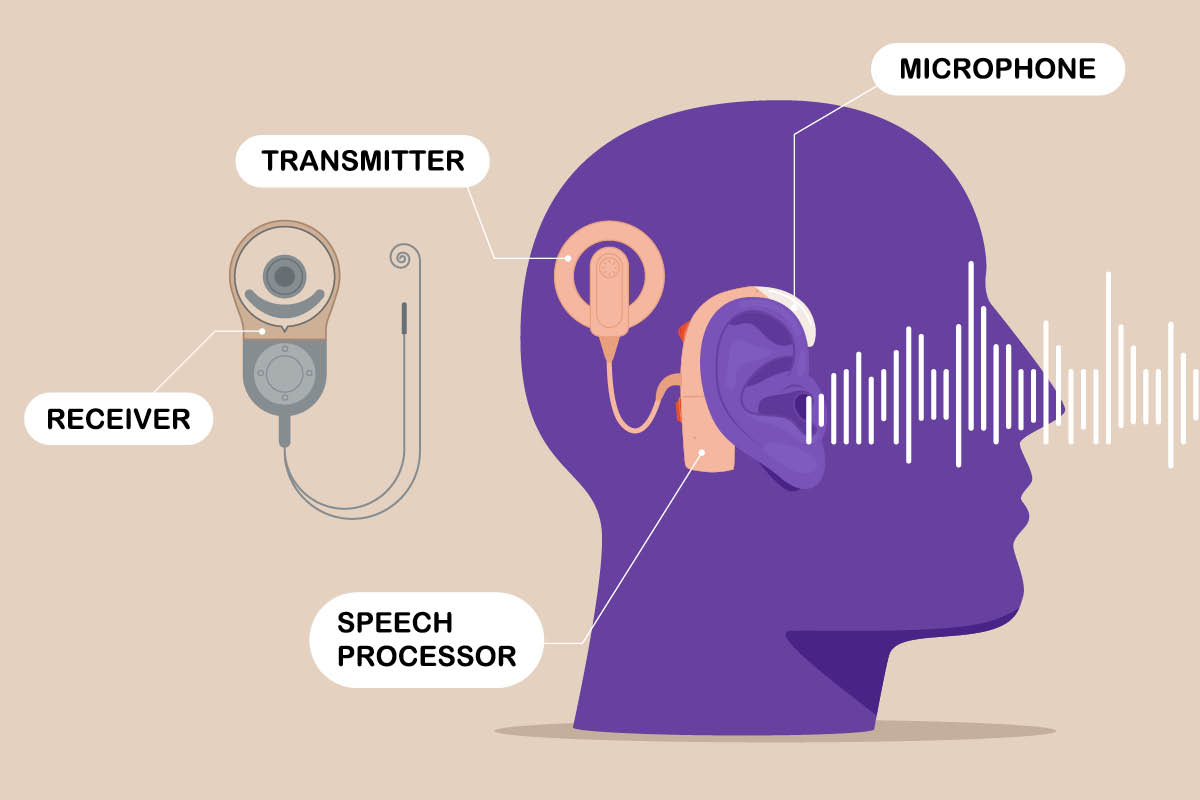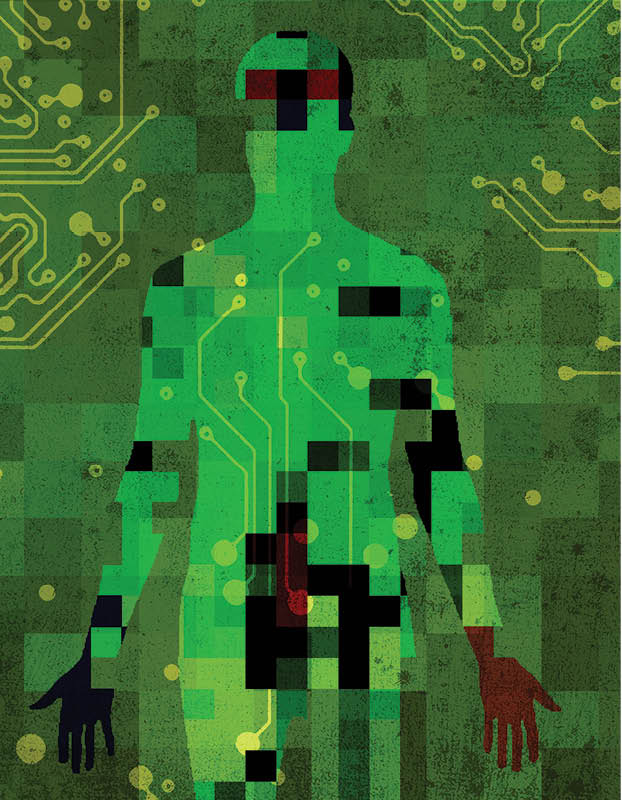Genetic Testing
Genetic testing should be considered by everyone planning a family, says Karen Grinzaid, assistant professor of human genetics at Emory School of Medicine. “There are genetic diseases that can happen that haven’t shown up in your family yet,” she says. But a whole genome test might make would-be parents more nervous than is necessary. “When you do broader testing like that, it may turn up problems where it’s not clear what the implications are,” Grinzaid said. “So, I just can’t overemphasize the importance of genetic counseling to help people through this journey.” – Georgia Public Broadcasting, “80% of Rare Diseases Are Genetic.”
Cochlear Impants
Cochlear implants
have improved hearing loss for decades, but few who qualify for an implant get one, even in countries with universal health care. Esther Ximena Vivas, an otolaryngologist who runs the cochlear implant program at Emory School of Medicine, says: “So, maybe it’s not just access to health care but more cultural things, and basic information and knowledge on the provider side.” –
STAT, “Why Very Few People Who Are Eligible for a Cochlear Implant Actually Get One.”
Climbing Stairs
Climbing stairs comes with a lot of health benefits. For starters, it’s good for your heart health. “We know just changing the grade or slope –the equivalent of walking up stairs–provides a greater stress on the heart, lungs, and body,” says Laurence Sperling, a cardiologist with Emory Heart and Vascular and the Katz Professor in Preventative Cardiology at Emory School of Medicine. This makes stair climbing a great way to improve one's aerobic fitness, he says. “If you take the stairs whenever you have an opportunity or walk up a hill whenever you have an opportunity, there are cumulative health benefits to that.” Along with strengthening the glutes and muscles in the legs, stair climbing is also a good indicator of overall health. “[Personal fitness] can be gauged by your ability to walk up a flight or two flights or five flights of stairs,” says Sperling. “If you’re noticing a decline in the ability to climb stairs, more from a fitness and/or respiratory capability standpoint, that’s really helpful to bring up to your doctor or clinical team because that might be a clue to underlying health concerns.”
If stairs are easy for you, you can do things like put on a weighted vest or skip a step, which forces the muscles to work harder. People can also walk up the stairs sideways to work the side of their hips. – Yahoo! Life, “Make the Most Out of Climbing Stairs.”
Artificial Intelligence (AI)
Artificial intelligence (AI)
—computational analytics with routine imaging via radiology or pathology—can advance precision medicine in breast cancer, specifically by predicting response to therapy and calculating prognosis, according to a pioneer in the field, Anant Madabhushi, Robert W. Woodruff Professor in the Emory and Georgia Tech Department of Biomedical Engineering and director of the Emory Empa-thetic AI for Health Institute (AI.Health).
In his keynote at the 2024 Miami Breast Cancer Conference, Madabhushi described his team’s research using computational analyses aimed at improving cancer outcomes. “One of the biggest challenges is the issue of overdiagnosis and overtreatment of a number of cancers,” Madabhushi said. “A case in point is prostate cancer, where 1 in 7 men will be diagnosed with it but only 1 in 40 will actually die from it. Yet we throw the proverbial kitchen sink—in terms of treatment—at a number of these cancers, even though many of them are indolent and less aggressive.”
Novel treatments such as immunotherapy have enhanced outcomes but do not work in all patients and often create “financial toxicity,” so more streamlined approaches are needed. “Our group is looking at the role of AI, not just in developing better diagnostic tools but also better prognostic and predictive tools, so we can appropriately tailor therapy,” Madabhushi said. “There’s so much information we are not currently capturing, and with the power of AI we can pull out features in areas we have not been typically used to evaluating.” – The ASCO Post, “Can Artificial Intelligence Predict Treatment Response and Outcomes in Breast Cancer?”
Email the Editor 











